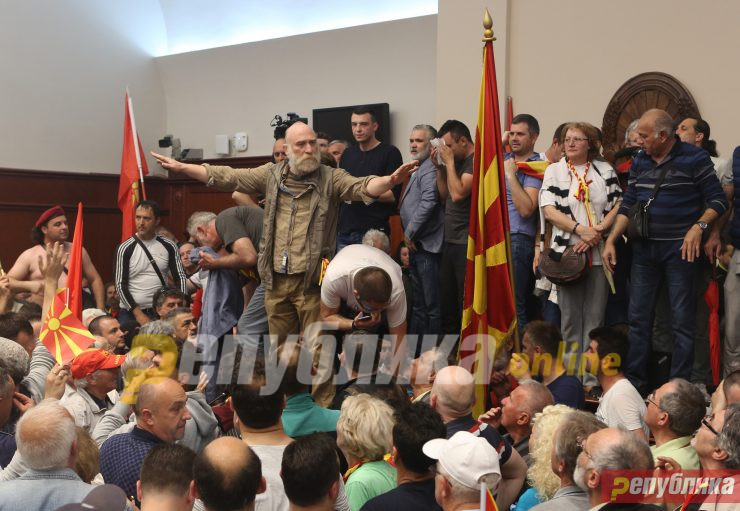The Swedish Government’s decision to uphold the Supreme Court’s assessment that Dejan Davidovski, accused in the country for the violence in Parliament, should not be extradited, “should in no way be interpreted as the position of the Swedish government regarding what happened on April 27, 2017 “, the Embassy of Sweden in Skopje told “360 Degrees”.
Democracy must run its course without violent interference. The violent actions that took place that day were and remain unacceptable, the Swedish Embassy said.
It added that the Swedish government’s decision was “expected, as it cannot grant extradition if the Court finds there are legal obstacles.
The crime for which his extradition is sought is considered by the Swedish Supreme Court to belong to the group of ‘political crimes’ for which, under Swedish extradition law, we do not extradite. This is also embedded in the European Convention on Extradition, the Swedish Embassy said, referring to Article 6 of the Swedish Extradition Act of 1957.
The crime that Davidovski is charged with is a crime in Sweden as well, the Embassy said, adding that “Chapter 18, Article 1 of the Swedish Criminal Code states that similar crimes in Sweden are punishable with prison sentences up to 10 years.
“360 Degrees” has already written that in the case of Davidovski international legal standard was applied, contained also in our Law on International Cooperation in Criminal Matters. Article 53 of the law explicitly states that “extradition shall not be granted for political crimes or crimes related to those crimes”.
Dejan Davidovski, in an interview with TV Alfa on Friday said that “the Supreme Court’s refusal to extradite him is a strong slap in the face for the Zaev’s junta and that there is no clearer message about what is happening in Macedonia and about the defendants and convicts in the April 27 case!





Comments are closed for this post.